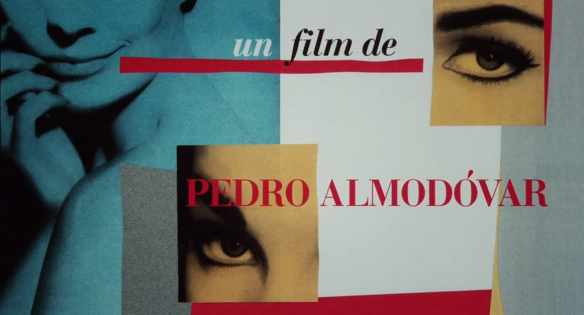
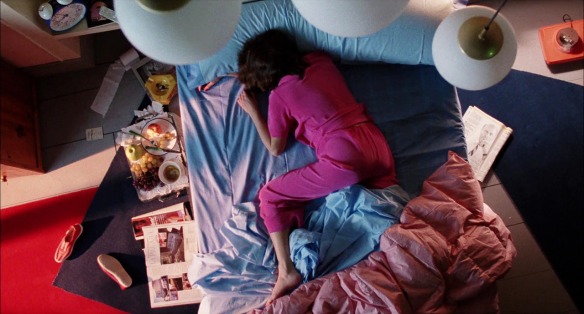
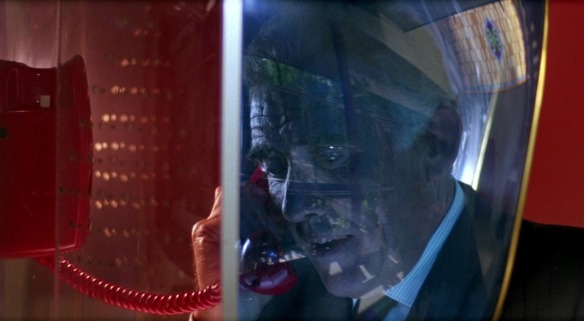
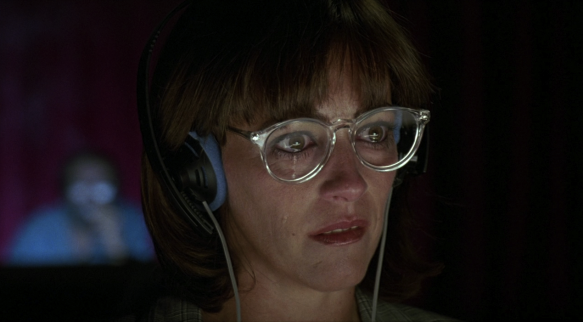

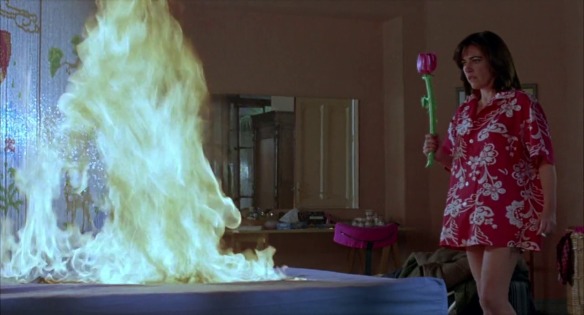
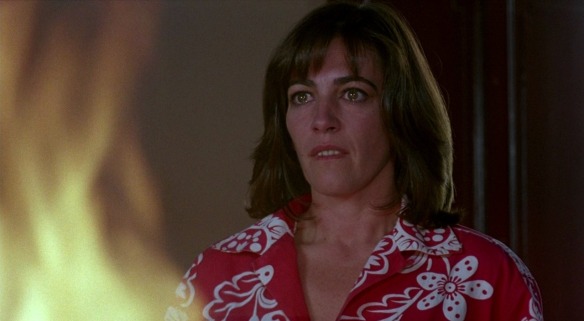
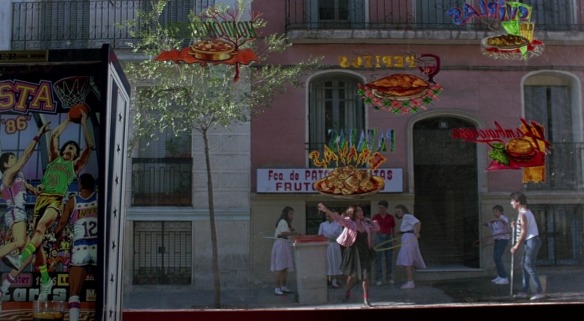
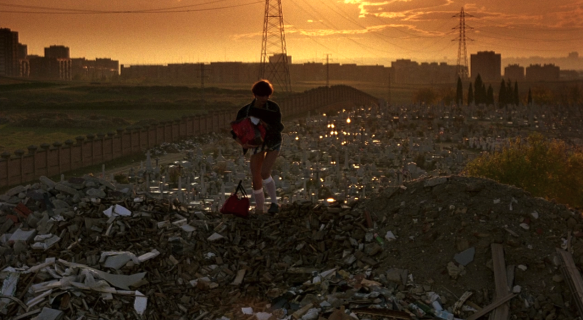
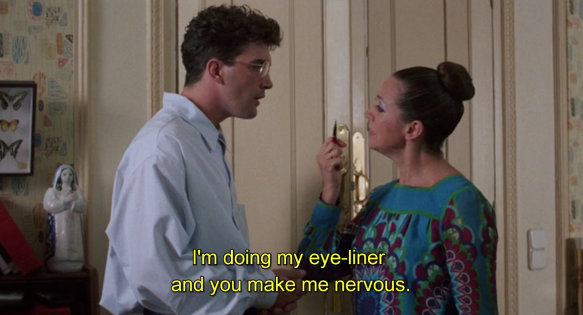
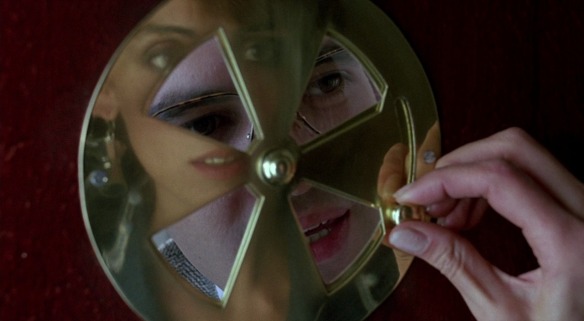
In anticipation of the upcoming film Pain and Glory, I took a leap of faith last month and dove into the filmography of Pedro Almodóvar, whose work I had been intrigued by ever since my high school AP English teacher told the class about his limitless admiration for Talk to Her. Thanks to the Criterion Channel app, I started with the film that I had heard was one of the most accessible introductions to the auteur’s style, Women on the Verge of a Nervous Breakdown. Designed as an homage to the Jean Cocteau play The Human Voice, the film is a madcap confection of occasionally surreal humor that moves at the breakneck pace of Hollywood screwball comedies from the 1930s and 40s and is anchored by the incredible actresses whose characters propel the story forward.
The glowing sun at the center of Women’s solar system is Pepa (Carmen Maura, a new favorite for me), an actress who has had some success doing TV commercials and voiceovers for Spanish-language dubs of American films like Nicholas Ray’s 1954 cult classic Johnny Guitar. Pepa is in a state of barely-controlled panic thanks to a bad breakup: her married lover, Iván (Fernando Guillén), has left her for someone new. Even worse, Iván’s long-suffering wife Lucía (Julieta Serrano) is consumed with exacting revenge on Pepa almost as much as Pepa obsesses over getting Iván back. Lucía tries to convince her grown son, Carlos (Antonio Banderas with a haircut best described as “the Lyle Lovett”), of how much she has been hurt by his father’s philandering, but Carlos soon finds himself unexpectedly crossing paths with Pepa when he and his fiancée Marisa (Rossy de Palma) coincidentally answer an ad that Pepa has placed to sell her apartment. Add to the mix Pepa’s friend Candela (María Barranco), who believes that the police are hunting her down as an unwitting accomplice to a potential terrorist attack – don’t ask – and that, like Pepa’s refrigerated pitcher of barbiturate-laced gazpacho, is a recipe for absurd, funny disaster.
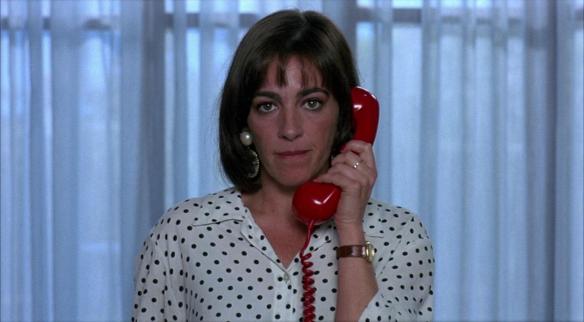
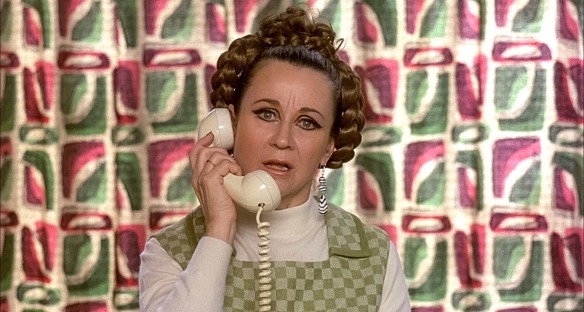
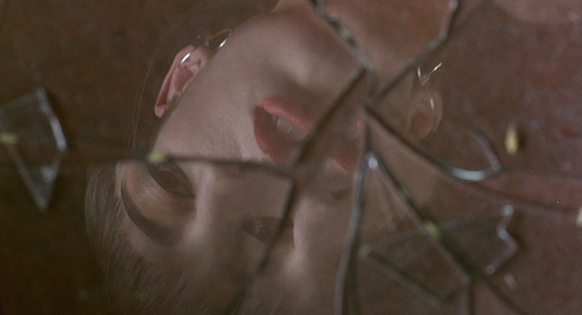


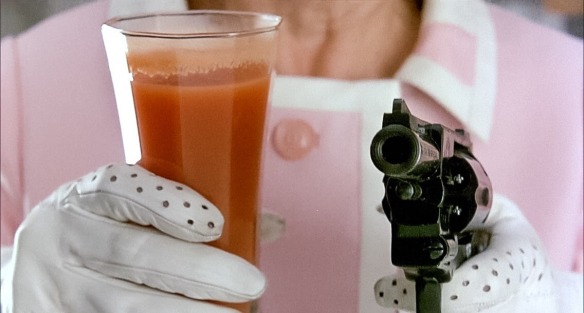
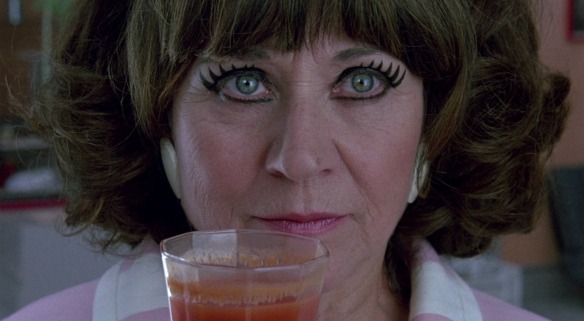
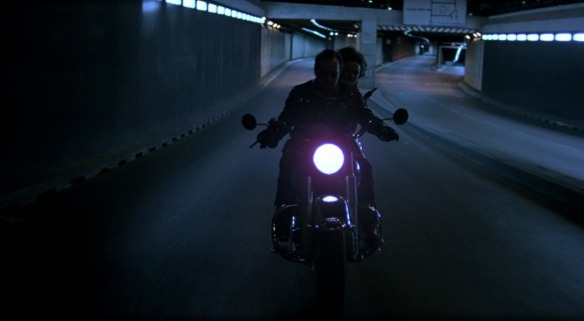
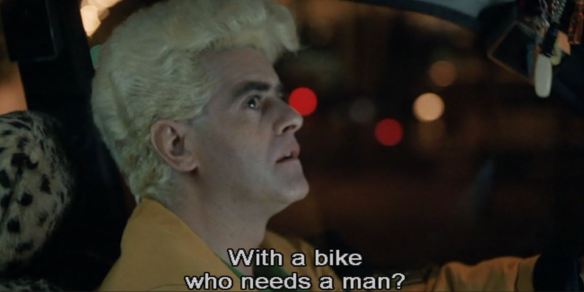
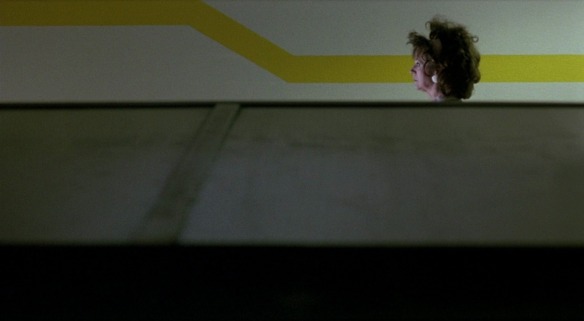
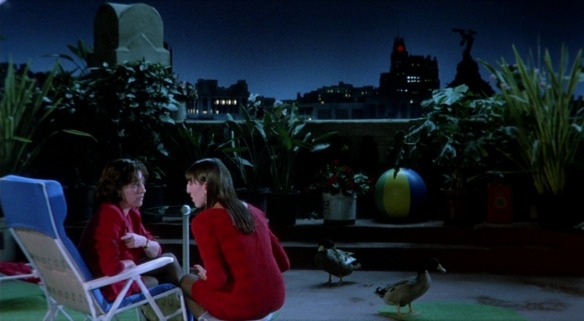
The supporting cast includes more recurring faces from Pedro Almodóvar’s oeuvre, like Kiti Mánver, Chus Lampreave and Loles León, as well as Guillermo Montesinos playing the driver of Madrid’s most enthusiastic form of car service, the Mambo Taxi. Almodóvar’s screenplay and direction, the cinematography by José Luis Alcaine, costumes by José María de Cossío and the score composed by Bernardo Bonezzi harmonize to present a colorful cinematic delight, topped off by a great La Lupe song in the end credits. Since watching Women, I have seen (in this order) Tie Me Up! Tie Me Down!, Matador, Law of Desire, What Have I Done to Deserve This?, High Heels, Kika and The Flower of My Secret, all of which have strengthened my newfound affection for Almodóvar’s unique artistry. I don’t know if I’ll have time to make my way through his entire filmography before Pain and Glory opens in New York theaters, but I’ll give it my best shot!
